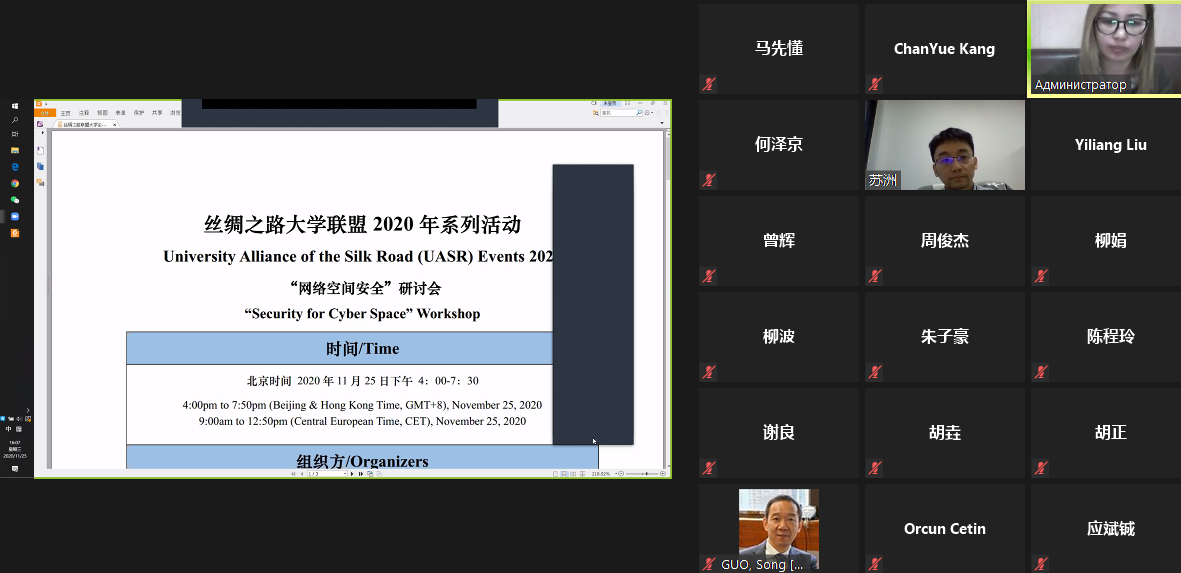The "Security of Cyber Space" Workshop hosted by the University Alliance of the Silk Road and Xi'an Jiaotong University was successfully held on November 25, 2020. International scholars, from the City University of Macau, the University of Delaware in the USA, the University of Avignon in France, the Hong Kong Polytechnic University, the University of Technology Sydney in Australia, the University of Windsor in Canada, and the Sabanci University in Turkey, reported the challenges of cyberspace security and the latest research of the corresponding countermeasures.

First of all, Professor Xiang-Gen Xia, from the University of Delaware in the USA, gave a talk of "Phased-Array Transmission for Secure mmWave Wireless Communication via Polygon Construction" to introduce the role of the phased array and complex plane polygons in confidential transmissions of mmWave technologies. Professor Wanlei Zhou, from the City University of Macau, introduced the defense mechanism against malicious query attacks in cyberspace from the perspective of the game theory with the topic of "Threats and Defenses in Cyber Security: Using Game theory to Deceive Cyber Adversaries". Professor Abderrahim Benslimane, from the University of Avignon in France, discussed the important role of network monitoring in the fault location and recovery mechanism for the Internet of Things with the talk of "Internet of Things: Monitoring and Optimization Challenges".
Professor Song Guo, from the Hong Kong Polytechnic University, illustrated the positive effect of deep reinforcement learning in the parameter optimization of the blockchain with the topic "Deep Reinforcement Learning-Empowered Blockchain: Security Challenges and Solutions". Professor Shui Yu, from the University of Technology Sydney, Australia, introduced the concept of personalized privacy and the privacy protection technology based on the federal learning framework in his talk of "Privacy Study in the Age of Big Data". Professor Ning Zhang, from the University of Windsor in Canada, gave a talk of "Enhancing Security through the Bottom Layer" to review some novel technologies on physical layer security transmission and authentication. Finally, Dr. Orcun Cetin, from Sabanci University in Turkey, explained why the voluntary actions of network service providers and network resource owners play a positive role in vulnerability repair with the topic of "Increasing the Impact of Voluntary Action Against Cybercrime".
This workshop provided a platform for scholars from different countries to discuss recent investigations on the theories and technologies of cyberspace security. Also, it strengthened the international academic cooperation in hot research. The workshop plays a significant role in the advancement of research on both cyberspace security and personal privacy protection.
